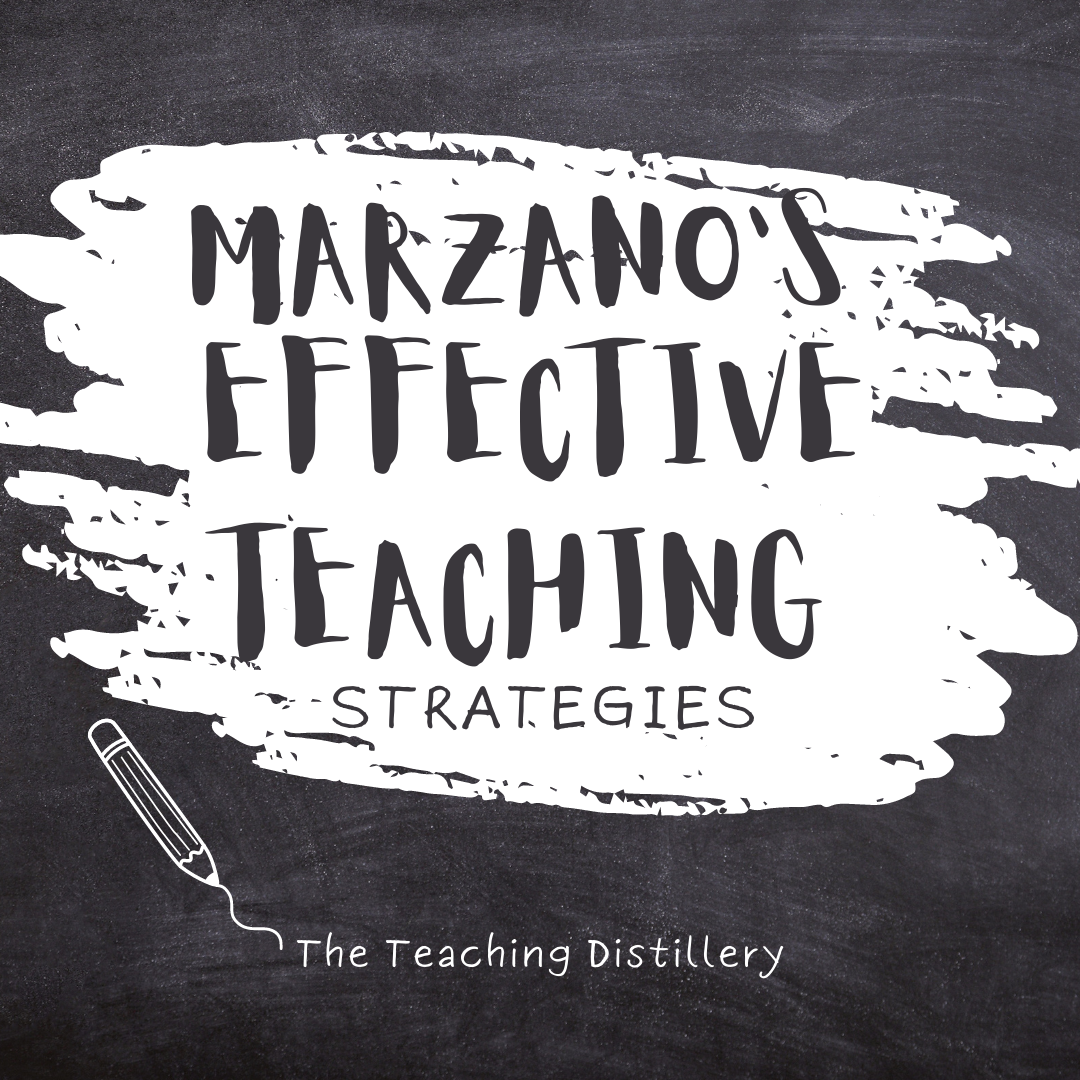Marzano’s Effective Teaching Strategies
Robert Marzano is an educational researcher, and he focuses on effective teaching strategies. He says that the keys to school wide achievement are effective and research based teaching strategies, effective and timely feedback, and improving academic vocabulary.
Here are Marzano’s top 9 most effective teaching strategies:
1. Identifying similarities and differences.
Students need to compare and contrast ideas to solve complex problems. Check our Top Hat Notes and Describe and Compare lessons for some ideas on how to teach students to find and discuss similarities and differences in what they read.
2. Summarizing and note taking
Students need to be able to read, gather evidence, and write a summary. We love using all of the lessons from Emily Kissner’s book Summarizing, Paraphrasing, and Retelling. Also, check out our interactive notes, central ideas, and text evidence lessons which lend themselves quite nicely to help gather the right info for writing a summary.
3. Reinforcing effort and providing recognition
It is always nice for teachers to give students positive reinforcement to see how their efforts and achievements are connected. We believe in rewarding students when they don’t know it is coming (aka fostering intrinsic motivation).
4. Homework and practice
Homework should never be busy work. It should always have an intention and specific learning goal. We like to only assign independent reading and Article of the Week (AOW’s) for homework. I try not to assign more than 40 minutes four days a week. Students are over scheduled after school and too much homework stresses them out.
5. Non-linguistic representations
We always make an effort to include videos and images into our presentation and give students opportunities to show their learning. We love our poetry unit for this type of learning. Have you heard of zines? Might be worth your time to check out if you are a secondary teacher.
6 Cooperative learning
As they say, two heads are better than one. In order for group work to be a productive use of time, it is important for teachers to create a community classroom of respect. Here are some of our tried and true lessons to support collaboration in the classroom.
7. Setting objectives and providing feedback
It is always nice for teachers to give in the moment feedback to students for improvement and sharing student work to elevate others in the classroom. Peardeck is a great tool for in the moment feedback and praise. We also start every lesson with a learning target for students to know what they will be learning and accountable for understanding by the end of the lesson.
8. Generating and testing hypotheses
This teaching strategy lends itself nicely to science, but we often have our students make predictions when reading. We love to read Truth About Sharks when we practice foreshadowing reading skills.
9. Cues, questions, and advance organizers
We find with each passing year, students need to have graphic organizers provided for them to make sense of just about anything that they read. Be sure to check out our note taking bundle. They’re really good!
